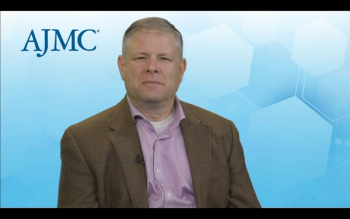
Policy
Latest News

What We’re Reading: Health Care Worker Shortages; Medicaid Eligibility Renewal; Train Clinic for Ohio
Latest Videos

CME Content
More News

Social Security and Medicare spending could double by 2023; FDA panel experts want naloxone to be available over the counter after the drug information is revised; Moderna announced its COVID-19 vaccines will stay free, and the Biden administration might keep tests and treatments free for the uninsured.

Using data from 632 primary care practices, the authors show that the CMS Practice Assessment Tool has adequate predictive validity for participation in alternative payment models.

On this episode of Managed Care Cast, we speak with Inland Empire Health Plan, a managed care plan serving more than 1.4 million residents on Medi-Cal in California, about a new maternal mental health program aimed at supporting new mothers, both before they give birth and afterward.

HHS wants to require nursing homes to disclose more ownership and management information; privacy advocates warn that mental health data can legally be sold from certain platforms not covered by the Health Insurance Portability and Accountability Act; the FDA won’t review Soligenix’s cancer drug proposal because of an insufficient application.

Congress has no solution for out-of-network ambulance rides; teenagers going to an emergency department in a mental health crisis don't receive necessary follow-up care; Medicaid explores nutritional benefits of food as medicine spending in some states.

Overall survival and recurrence-free survival showed substantial improvement when physicians more closely followed quality recommendations for non–small cell lung cancer (NSCLC).

Rates of preventive oral health services among pediatric medical visits in Florida were similar whether visits were paid via Medicaid comprehensive managed care or fee for service.

CDC recommends adults and children get routine COVID-19 shots; single dose of antibiotic during labor reduces risk of mothers developing sepsis; suicide rates increase after 2-year decline.

The Biden administration released 2 sets of guidance documents for pharmaceutical manufacturers about how it plans to implement the new Medicare Prescription Drug Inflation Rebate Program as required under the Inflation Reduction Act, and said some beneficiaries could see lower coinsurance for some Part B drugs as soon as April 1.

Some of the nation’s strictest provider network regulations have led to neither high rates of provider directory accuracy nor timely access to mental health care.

What We’re Reading: Child RSV Shot Disparities; Hospital Transparency Compliance; Abortion Pill Bans
A pediatric shot for respiratory syncytial virus (RSV) may not be covered as a free routine vaccine; hospitals fail to comply with payment transparency rules; the fate of abortion pills is in the hands of conservative judges

CDC warns against EzriCare Artificial Tears, which were recalled by the manufacturer; certain weight loss drugs not covered by most payers; Mississippi's Republican governor denies being privately in support of Medicaid expansion.

With the public health emergency soon coming to an end, people covered by Medicaid will encounter new barriers, discusses Dennis Scanlon, PhD, professor of health policy and administration, Penn State University.

The government is allowing Medicare Advantage (MA) plans to delay returning hundreds of millions of dollars or more in government overpayments; a proposed new extension of the Affordable Care Act (ACA) might make birth control coverage more accessible for certain private insurance plans; a study found that students lost around 33% of their school year because of the pandemic’s educational barriers and are struggling to regain that lost time.

The United States possesses the highest infant and maternal mortality rates compared with any other high-income country, even though it spends the most on health care.

An HHS report said that if the Inflation Reduction Act (IRA) had been implemented in 2020, Medicare Part D beneficiaries could have saved a total of $734 million, averaging out to about $500 per member.

A new study estimated Medicare drug price negotiation savings; food benefits provided under the Supplemental Nutrition Assistance Program (SNAP) will return to prepandemic amounts; pharmacies reduce hours to cope with staffing shortages, improve work-life balance.

A new study estimates that prescription of standard-of-care non–small-cell lung cancer (NSCLC) therapies is lower than expected in Medicaid programs, with significant variation between states.

The FDA is relaxing some time-based deferrals for donating blood; new guidance aims to streamline the COVID-19 vaccination process; Congress has been called on to solidify cannabidiol (CBD) regulations.

States in which recreational cannabis is legal see declining codeine prescriptions; the FDA plans to simplify the use of COVID-19 vaccines; state-wide abortion debates ramp up as Congress deadlocks

Medical residents join unions for better pay and working conditions; the World Health Organization (WHO) appeals to China on COVID-19 information; health workers protest in Madrid, Spain.

Greater availability of naloxone spray, including over the counter, may reduce opioid overdoses; vaccination rates drop once again for US children; some experts question the necessity of the updated COVID-19 booster shot.

Differences in use of telehealth between commercial and Medicaid populations during the COVID-19 pandemic are associated with managed care enrollment.

A survey of all Arizona physicians found that accountable care organization, clinically integrated network, or integrated delivery network participation was associated with higher use of health information exchange. However, there are exceptions and important barriers noted.

Expanded health coverage sees an increase in enrollments; Antiabortion activists protest against CVS and Walgreens; $26,500 Alzheimer’s drug limits affordability















